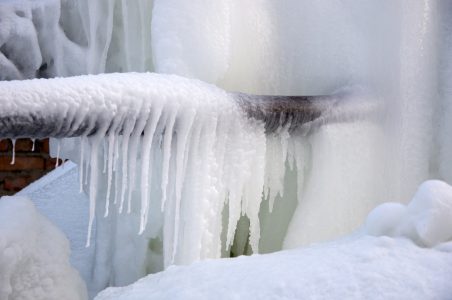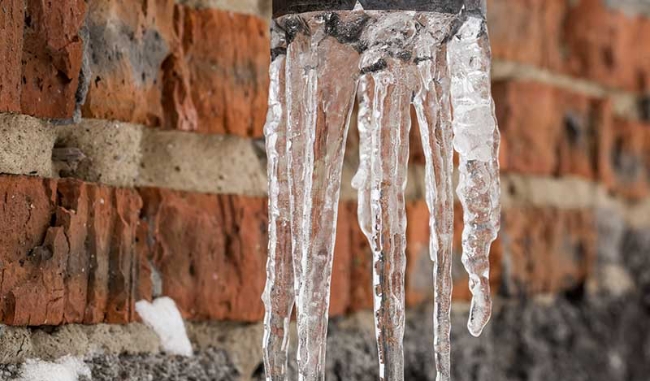Tips to Defend Plumbing System from Cold Weather: Critical Advice
Tips to Defend Plumbing System from Cold Weather: Critical Advice
Blog Article
Right here below you'll find additional incredibly good advice relating to Prevent Frozen Pipes .

Winter can ruin your plumbing, especially by freezing pipelines. Here's just how to prevent it from occurring and what to do if it does.
Introduction
As temperatures decline, the risk of frozen pipes increases, possibly causing expensive repair services and water damage. Understanding just how to stop frozen pipelines is crucial for home owners in chilly climates.
Recognizing Frozen Pipelines
What causes pipelines to ice up?
Pipes freeze when revealed to temperatures listed below 32 ° F (0 ° C) for extended durations. As water inside the pipes freezes, it increases, putting pressure on the pipe wall surfaces and possibly causing them to rupture.
Threats and damages
Frozen pipes can bring about supply of water disturbances, home damage, and expensive repair services. Burst pipes can flood homes and cause substantial architectural damage.
Indications of Frozen Water Lines
Determining frozen pipes early can prevent them from bursting.
How to recognize icy pipelines
Search for decreased water circulation from taps, unusual smells or sounds from pipelines, and noticeable frost on subjected pipelines.
Avoidance Tips
Insulating susceptible pipes
Cover pipelines in insulation sleeves or use heat tape to shield them from freezing temperatures. Concentrate on pipes in unheated or exterior locations of the home.
Heating methods
Keep indoor spaces adequately heated up, especially areas with pipes. Open closet doors to allow warm air to flow around pipelines under sinks.
Safeguarding Exterior Pipes
Garden hose pipes and exterior taps
Disconnect and drain garden pipes prior to winter months. Install frost-proof spigots or cover outdoor faucets with protected caps.
What to Do If Your Pipes Freeze
Immediate actions to take
If you presume icy pipelines, maintain faucets available to ease pressure as the ice melts. Use a hairdryer or towels soaked in warm water to thaw pipes gradually.
Long-Term Solutions
Structural changes
Think about rerouting pipelines away from exterior wall surfaces or unheated locations. Add additional insulation to attic rooms, basements, and crawl spaces.
Upgrading insulation
Buy top quality insulation for pipes, attic rooms, and wall surfaces. Appropriate insulation assists maintain constant temperatures and decreases the risk of icy pipes.
Final thought
Stopping icy pipelines requires proactive measures and fast reactions. By understanding the reasons, indications, and preventive measures, home owners can safeguard their pipes throughout winter.
6 Proven Ways to Prevent Frozen Pipes and Protect Your Home
Disconnect and Drain Garden Hoses
Before winter arrives, start by disconnecting your garden hoses and draining any remaining water. Close the shut-off valves that supply outdoor hose bibs and leave the outdoor faucet open to allow any residual water to drain. For extra protection, consider using faucet covers throughout the colder months. It’s also important to drain water from any sprinkler supply lines following the manufacturer’s directions.
Insulate Exposed Pipes
Insulating your pipes is an effective way to prevent freezing. Pipe insulation is readily available at home improvement stores and is relatively inexpensive. Pay close attention to pipes in unheated areas such as the attic, basement, crawl spaces, or garage. Apply foam insulation generously to create a buffer against the cold. You can also wrap your pipes in heat tape or thermostat-controlled heat cables for added warmth.
Seal Air Leaks
Inspect your home for any cracks or openings that could let in cold air. Seal any holes around the piping in interior or exterior walls, as well as the sill plates where your home rests on its foundation. Additionally, make sure to keep your garage door closed unless you’re entering or exiting. Leaving it open creates a significant air leak that can lead to frozen pipes.
Allow Warm Air Circulation
During cold snaps, it’s essential to allow warm air to circulate evenly throughout your home. Leave interior doors ajar to promote better airflow. Open kitchen and bathroom cabinets to help distribute heat consistently around the rooms. If you have small children or pets, be sure to remove any household chemicals or potentially harmful cleaners from open cabinets for safety.
Let Faucets Drip
A small trickle of water can make a big difference in preventing ice formation inside your pipes. When temperatures drop significantly, start a drip of water from all faucets served by exposed pipes. This continuous flow helps prevent the water from freezing. Additionally, running a few faucets slightly can relieve pressure inside the pipes, reducing the chances of a rupture if the water inside does freeze.
https://choateshvac.com/6-proven-ways-to-prevent-frozen-pipes-and-protect-your-home/

Do you really like more info about How To Avoid Freezing Pipes? Try to leave a short review below. We will be glad to hear your opinion about this blog entry. Hoping to see you back again later on. Don't hesitate to take the time to share this blog entry if you enjoyed it. Thank you so much for taking the time to read it.
Get A Free Estimate Report this page